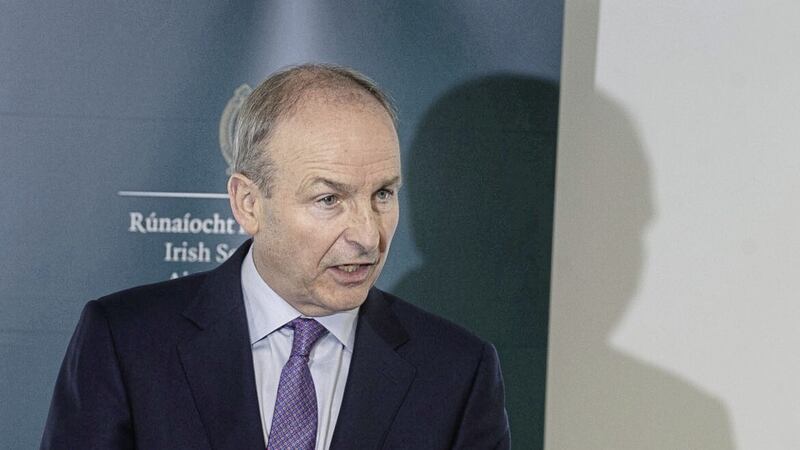After the SDLP got hammered in May’s assembly elections the party announced they wouldn’t nominate a caretaker minister to replace Nicola Mallon who’d lost her seat.
They acknowledged they hadn’t won a mandate to be in the executive: a principled position.
Now, let’s be clear about it. The people joining the queue to demand ‘reform’ of the Good Friday Agreement’s processes for forming an executive are asking for parties who didn’t get enough votes to lead an executive, nevertheless to lead an executive. They correctly castigate the DUP for behaving undemocratically by refusing to accept the will of people here, but propose to behave undemocratically themselves by replacing the DUP (or Sinn Féin) with parties which didn’t receive a majority of votes.
It’s cloud cuckoo land. It couldn’t, shouldn’t, and wouldn’t work. Neither of the two main parties will agree in any case. It won’t happen.
Micheál Martin gave the appeals for reform legs when he told the Financial Times the GFA is “not fit for purpose”, but he gave the wrong reasons, namely that the voting system, “does polarise” and should be changed because “there’s a healthy spread of parties now.” Neither assertion is true. Voting has always been polarised here, but not because of the Good Friday Agreement; the cause is this artificially constructed polity. There isn’t ‘a healthy spread of parties’. About 80 per cent of voters vote according to identity and allegiance. Talk of an ‘Alliance surge’ is all very well, except that the ‘surge’ amounted to 13.5 per cent in May. You can’t create an executive based on the understandable frustrations of 13.5 per cent of voters. Typically, Martin pathetically shied away from anything decisive. He lamely suggested reform “could be considered over four to five years”. Huh.
To be fair, none of the other advocates of reform has presented any detail, except to suggest an executive should be formed by excluding a boycotting party. That is a childishly naïve suggestion that can only come from ‘nayce sensible people’ who imagine this place can have what they call ‘normal politics’. If the DUP were excluded after an election in which they would inevitably garner the largest unionist vote, their reaction would be, shall we say, unparliamentary. You’ve seen it all before: marches, rallies, road blocks, and other stunts, like filibusters and sit-ins including disrupting the assembly.
Besides, do the reformers think the other large party dominating the executive would behave like the nayce reformers presume, wouldn’t block business it didn’t like being pushed by minority parties? Would the UUP and SDLP be able to withstand the abuse for siding with the Alliance party to subvert democracy at the ballot box? They’d be massacred at the next election.
Here’s the truth. The agreement hasn’t worked and doesn’t work because the DUP has never let it work nor has ever subscribed to it. Over twenty years the DUP has blocked any and all progressive legislation whether on education, societal change, Irish language or human rights. They’ve blocked any progress at the North-South Ministerial Council. They’ve prevented progressive items being tabled at executive meetings. At their worst the DUP tells voters the GFA is a conspiracy to give nationalists everything and unionists nathin, so it must be resisted because any change must mean unionists lose out.
The net effect of this big lie is that the DUP, by refusing to allow the GFA to work, has successfully demonstrated the truth of the republican analysis that the north is a failed entity. As long as the DUP maintains this position it’s pointless tweaking the executive and assembly rules because the DUP will strive to wreck anything that they perceive to be to their disadvantage.
Appropriately for this place the metaphor that applies to changing the rules for forming an executive is moving the deck chairs on the Titanic. To continue the metaphor, the ship is sinking. It’s time to abandon it and strike out for a new all Ireland horizon.








